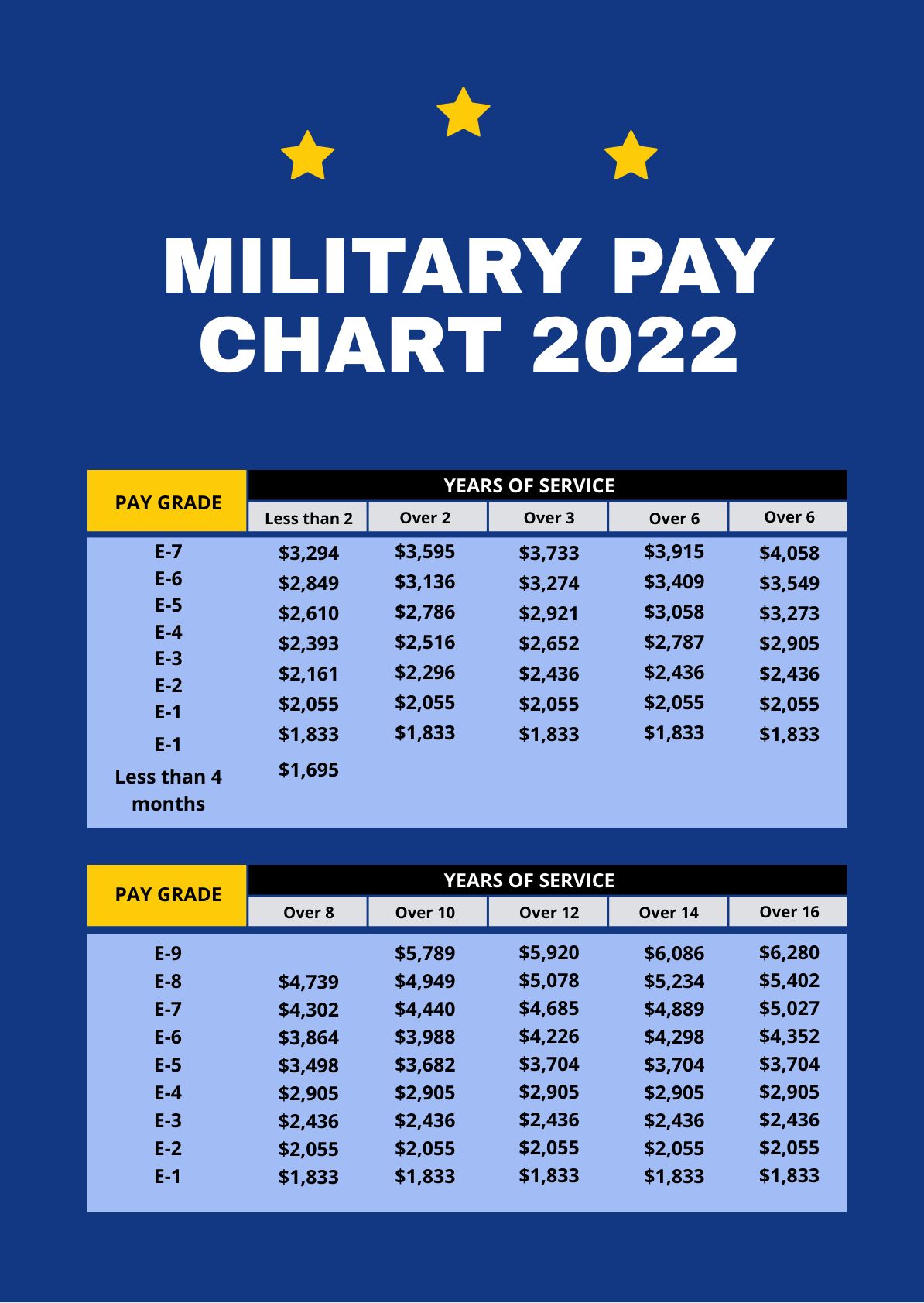E5 Married 4 Kids Pay

Are you a parent juggling a busy life and trying to find ways to make ends meet while saving for your family's future? Many married couples with children often face financial challenges and wonder how they can effectively manage their finances. In this blog post, we will explore the concept of financial planning for married couples with children, providing valuable insights and tips to help you navigate your financial journey successfully.
Understanding Your Financial Goals

Before diving into financial planning, it's crucial to define your short-term and long-term financial goals. As a married couple with children, your goals may include saving for your kids' education, planning for retirement, paying off debts, or even starting a business. By clearly outlining your objectives, you can create a tailored financial plan that aligns with your family's vision.
Consider discussing the following aspects with your partner:
- Education expenses for your children.
- Retirement planning and saving for a comfortable future.
- Emergency funds and how to prepare for unexpected expenses.
- Investing in property or other assets to build wealth.
- Setting aside money for leisure activities and family vacations.
By aligning your financial goals, you can work together as a team to achieve them.
Creating a Budget and Tracking Expenses

Developing a budget is an essential step in managing your finances effectively. It helps you understand your income, expenses, and areas where you can cut back or save more. Here's a simple guide to creating a budget:
- List your monthly income, including salaries, bonuses, and any other sources of revenue.
- Identify fixed expenses such as mortgage or rent payments, utility bills, insurance, and loans.
- Determine variable expenses like groceries, entertainment, dining out, and clothing.
- Set aside money for savings and investments, aiming for at least 10% of your income.
- Review your budget regularly and make adjustments as needed.
To track your expenses effectively, consider using budgeting apps or spreadsheets. These tools can help you monitor your spending, identify areas where you may be overspending, and make informed decisions about your financial habits.
Managing Debt and Building Credit

Debt management is a critical aspect of financial planning, especially for married couples with children. It's essential to understand the different types of debt and their impact on your financial health.
Types of Debt
- Good Debt: These are debts that can help you build wealth or improve your financial situation over time. Examples include mortgages, student loans, and business loans.
- Bad Debt: This type of debt often involves high-interest rates and can be challenging to pay off. Credit card debt and payday loans fall into this category.
Tips for Managing Debt
- Prioritize paying off high-interest debt first.
- Consider consolidating your debts to lower interest rates and simplify payments.
- Negotiate with creditors to reduce interest rates or create a repayment plan.
- Avoid taking on new debt unless absolutely necessary.
Building a good credit score is also crucial for your financial well-being. A strong credit score can help you secure better interest rates on loans, qualify for credit cards with rewards, and even impact your insurance premiums. Here are some tips to improve your credit score:
- Pay your bills on time consistently.
- Keep your credit card balances low and avoid maxing out your cards.
- Check your credit report regularly for errors and dispute any inaccuracies.
- Avoid closing old credit accounts, as they contribute to your credit history.
Saving for the Future

Saving for your family's future is a critical aspect of financial planning. Here are some strategies to consider:
Education Savings
With the cost of education rising, it's essential to start saving early for your children's future. Research different savings options, such as 529 plans or education savings accounts, which offer tax benefits and flexible investment options.
Retirement Planning
As a married couple, it's crucial to plan for your retirement together. Maximize your contributions to employer-sponsored retirement plans like 401(k)s or IRAs. Consider investing in a diverse portfolio of stocks, bonds, and mutual funds to grow your retirement savings over time.
Emergency Funds
Life is full of surprises, and having an emergency fund can provide financial security during unexpected events. Aim to save at least three to six months' worth of living expenses in a liquid account, such as a high-yield savings account, to cover emergencies like medical bills or car repairs.
Investing for Growth

Investing is a powerful tool to grow your wealth over time. Here are some investment options to consider:
Stocks and Mutual Funds
Investing in stocks and mutual funds can provide long-term growth potential. Research and diversify your portfolio to mitigate risks. Consider consulting a financial advisor to guide you through the process and help you make informed investment decisions.
Real Estate
Investing in real estate can be a lucrative option. Whether it's buying rental properties or investing in real estate investment trusts (REITs), real estate offers the potential for income generation and capital appreciation.
Business Ventures
If you have an entrepreneurial spirit, starting a business can be a rewarding investment. Evaluate your skills, interests, and market opportunities before taking the leap. Seek guidance from business mentors or consider joining a business incubator for support and resources.
Insurance and Protection

Protecting your family's financial future is essential. Consider the following insurance options to safeguard your finances:
Life Insurance
Life insurance provides financial security for your family in the event of your untimely demise. Choose a policy that covers your outstanding debts, future expenses, and provides a comfortable standard of living for your loved ones.
Health Insurance
Health insurance is crucial to cover medical expenses and protect your family's well-being. Research different plans and choose one that offers comprehensive coverage at an affordable rate.
Disability Insurance
Disability insurance provides income protection if you or your spouse become disabled and unable to work. It ensures that your family's financial obligations can still be met during a challenging time.
Financial Planning for Special Circumstances

Every family's financial situation is unique, and there may be special circumstances that require tailored financial planning. Here are some scenarios to consider:
Stay-at-Home Parent
If one spouse chooses to stay at home to care for the children, it's essential to plan for their financial security. Consider saving for retirement on their behalf and exploring part-time work or freelance opportunities to contribute to the family's income.
Single-Income Household
For families with a single income, it's crucial to prioritize saving and budgeting. Explore ways to increase your income, such as taking on freelance work or starting a side hustle. Consider cutting back on non-essential expenses to build an emergency fund and save for the future.
Blended Families
In blended families, financial planning can be more complex. It's important to have open and honest conversations about financial goals, debt management, and inheritance planning. Seek professional advice to ensure a fair and equitable financial arrangement for all family members.
Seeking Professional Advice

Financial planning can be complex, and seeking professional advice can be beneficial. Consider consulting a financial advisor who can provide personalized guidance based on your unique circumstances. They can help you develop a comprehensive financial plan, navigate investment options, and make informed decisions about your financial future.
Conclusion

Financial planning for married couples with children is a journey that requires dedication and discipline. By understanding your financial goals, creating a budget, managing debt, saving for the future, and investing wisely, you can secure a bright financial future for your family. Remember, seeking professional advice and regularly reviewing your financial plan can help you stay on track and adapt to life's changing circumstances.
FAQ

How much should I save for my child’s education?
+The amount you save for your child’s education depends on various factors, including their age, your income, and the cost of education. As a general guideline, aim to save at least 10% of your income for education expenses. Consider researching the average cost of education in your area and adjust your savings goals accordingly.
What are some tax-efficient ways to save for retirement?
+Employer-sponsored retirement plans like 401(k)s and IRAs offer tax advantages. Contributions to these plans are often tax-deductible, and the earnings grow tax-free until retirement. Additionally, consider investing in a Roth IRA, which allows tax-free withdrawals in retirement.
How can I start investing with a small budget?
+If you have a limited budget, consider investing in low-cost index funds or exchange-traded funds (ETFs). These funds provide diversification and require minimal investment amounts. You can also explore micro-investing apps that allow you to invest small amounts regularly.
What is the best way to teach my children about money and finances?
+Teaching your children about money and finances is crucial for their future financial well-being. Start by setting a good example and involving them in age-appropriate financial discussions. Encourage them to save, budget, and make wise spending choices. Consider opening a savings account in their name and teaching them about interest and compound growth.

